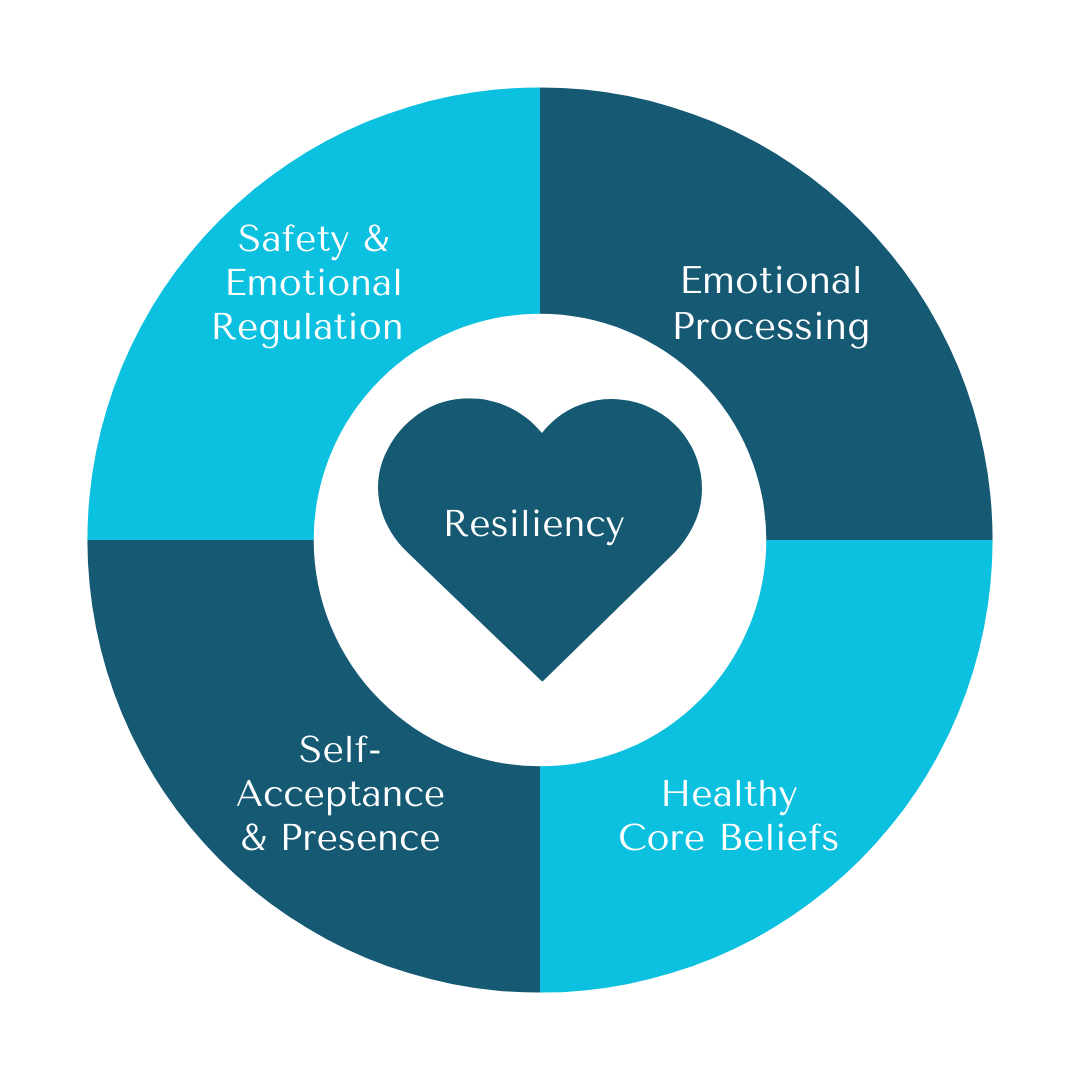Why Choose an Integrative Approach to Therapy?
Our thoughts significantly impact our emotions and actions. When life becomes too complex we may feel anxious, depressed, and stressed and our thinking may become increasingly hostile. A cycle of negative thoughts, negative feelings, and unhelpful behaviours ensues.

Cognitive behavioural therapy (CBT) aims to improve our quality of life by identifying unhelpful thoughts, analyzing them for validity, and ultimately, transforming them to be more realistic and less saturated with the influences of our daily struggles. This is what therapists term “cognitive restructuring.” When negative thinking becomes restructured, our emotions are more positive and not overshadowed by our thoughts. In turn, our behaviours become more aligned with our goals. Cognitive restructuring has been extensively researched and has been shown to have a significant impact on one’s well-being. However, shame, guilt, and self-criticism (perhaps developed through negative life experiences, especially trauma) can, at times, interfere with the acceptance of more positive thoughts and leave us stuck in a negative thinking trap. Compassion-focused therapy (CFT) is beneficial, as it assists in developing emotional safety, self-acceptance, and comfort with ourselves. CFT specializes in diminishing the self-criticism and fostering a wiser self that wants to encourage personal growth.
At The Resiliency Effect, compassion-focused therapy (and its cornerstone – mindfulness) are easily interwoven into CBT creating a powerful and holistic approach to wellness. Mindfulness techniques are taught to help clients learn metacognition and gain control of their thinking, physical symptoms, and emotions. CFT mindfulness is gentle and is used to build self-compassion and a sense of safety. For trauma survivors, intense mindfulness, is used to process unresolved emotional and physical pain at the neurological level. Uniting these therapeutical approaches is impactful and leads to positive changes in one’s well-being: cognitively, physically, emotionally, and neurologically.




